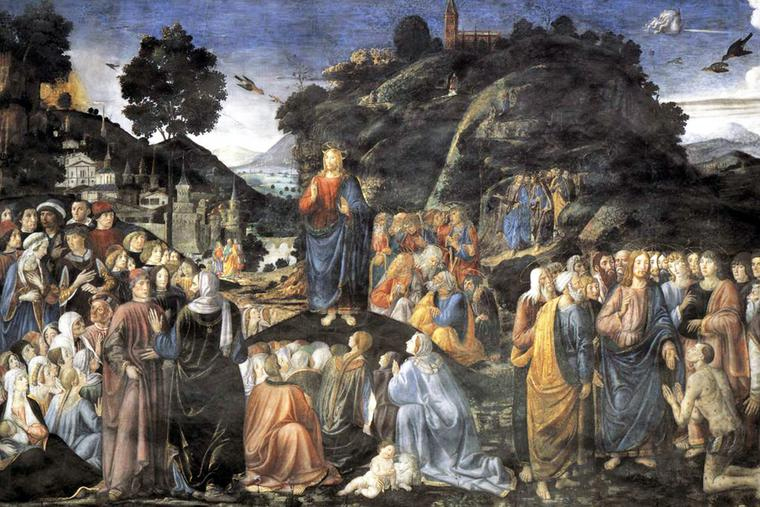Office Of Readings | Monday, Lent Week 1 | From A Sermon By Saint Gregory Nazianzen
‘Let us show each other God’s generosity.’
Saint Gregory Nazianzen
Saint Gregory of Nazianzen speaks of God’s generosity and the responsibility it places on us. Everything we have, he says — our life, our breath, our understanding, our hope — is a gift from God. Even our ability to know God is not something we create but something we receive.
Saint Gregory points to creation as further proof of this generosity. The sky, the sun, the moon, and the stars move in ordered harmony. Rain falls, crops grow, food is provided, and the skills that shape culture and society are part of this same gift. Humanity’s place as master of the earth, with dominion over animals and resources, is a sign of this abundance.
With these blessings comes a duty. Saint Gregory warns against selfishness — against hoarding while others go without. He recalls Saint Peter’s challenge to those who withhold what belongs to others and invokes the prophet Amos, who condemns those who exploit wealth and power.
Saint Gregory reminds us that God gives freely — rain falls on all, sunlight touches all, the earth’s resources are shared without limit or boundary. He calls for generosity not as an extra virtue but as a response to the way God has ordered the world — a duty of justice, not just kindness.
From A Sermon By Saint Gregory Nazianzen
Recognise to whom you owe the fact that you exist, that you breathe, that you understand, that you are wise, and, above all, that you know God and hope for the kingdom of heaven and the vision of glory, now darkly as in a mirror but then with greater fullness and purity. You have been made a son of God, co-heir with Christ. Where did you get all this, and from whom?
Let me turn to what is of less importance: the visible world around us. What benefactor has enabled you to look out upon the beauty of the sky, the sun in its course, the circle of the moon, the countless number of stars, with the harmony and order that are theirs, like the music of a harp? Who has blessed you with rain, with the art of husbandry, with different kinds of food, with the arts, with houses, with laws, with states, with a life of humanity and culture, with friendship and the easy familiarity of kinship?
Who has given you dominion over animals, those that are tame and those that provide you with food? Who has made you lord and master of everything on earth? In short, who has endowed you with all that makes man superior to all other living creatures?
Is it not God who asks you now in your turn to show yourself generous above all other creatures and for the sake of all other creatures? Because we have received from him so many wonderful gifts, will we not be ashamed to refuse him this one thing only, our generosity? Though he is God and Lord he is not afraid to be known as our Father. Shall we for our part repudiate those who are our kith and kin?
Brethren and friends, let us never allow ourselves to misuse what has been given us by God’s gift. If we do, we shall hear Saint Peter say: Be ashamed of yourselves for holding on to what belongs to someone else. Resolve to imitate God’s justice, and no one will be poor. Let us not labour to heap up and hoard riches while others remain in need. If we do, the prophet Amos will speak out against us with sharp and threatening words: Come now, you that say: When will the new moon be over, so that we may start selling? When will the sabbath be over, so that we may start opening our treasures?
Let us put into practice the supreme and primary law of God. He sends down rain on just and sinful alike, and causes the sun to rise on all without distinction. To all earth’s creatures he has given the broad earth, the springs, the rivers and the forests. He has given the air to the birds, and the waters to those who live in the water. He has given abundantly to all the basic needs of life, not as a private possession, not restricted by law, not divided by boundaries, but as common to all, amply and in rich measure. His gifts are not deficient in any way, because he wanted to give equality of blessing to equality of worth, and to show the abundance of his generosity.
![]()









